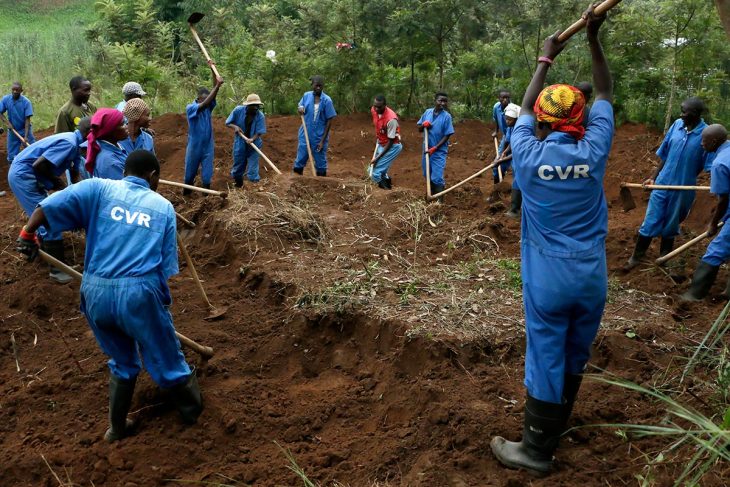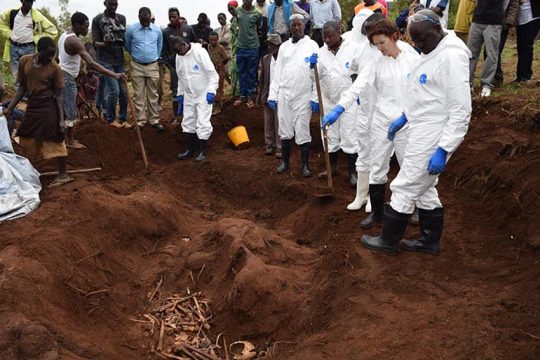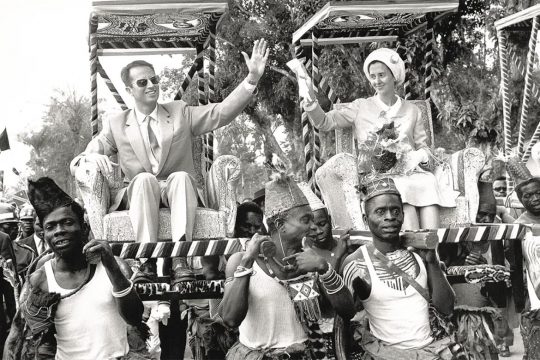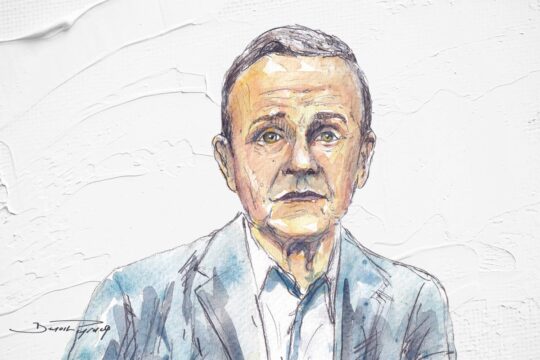Burundi made headlines by becoming the first country to withdraw from the International Criminal Court (ICC) in October 2017. Today, the small central African nation is once again making a name for itself. While in most countries major national events likely to mobilize crowds are postponed to limit the spread of coronavirus, Burundi is maintaining the 20 May date for its general elections. Government spokesman Jean-Claude Karerwa Ndenzako recently told the BBC that his country (which officially had only two confirmed cases of coronavirus as of 31 March) was "protected from any calamity" because it is bound to God by "a special pact".
The electoral process is therefore continuing, including the registration of candidates for the presidency currently held by President Pierre Nkurunziza, now dubbed the "Supreme Guide of Patriotism". Meanwhile, the Truth and Reconciliation Commission (TRC), charged with addressing the inter-ethnic conflicts that have bloodied the country since its independence, is continuing its work. But its exhumations of victims of 1972 massacres, presented by some perpetrators as genocide against the majority Hutu ethnic group, are causing growing controversy in this electoral context. Some Burundian observers fear there is a hidden agenda behind this operation. Others denounce outright an attempt by the authorities, through the Commission, to play on ethnicity in order to seduce the Hutu electorate.

Symbolic significance of the 1972 massacres
Lambert Nigarura, president of the Burundian Coalition for the ICC, points to the TRC's lack of forensic expertise, material and technical means to identify victims and date massacres. For him, this operation carried out in "haste" is "decidedly dangerous". "Launching these activities despite the lack of anything that could help establish the truth hides a desire to manipulate history for purely political purposes on the eve of elections," he said.
French sociologist André Guichaoua, one of the leading Western specialists on this troubled region of the African Great Lakes, is closely following the work of the TRC. He emphasizes that "all the exhumation procedures that make it possible to carry out inventories of the sites and to bury the remains of these victims with dignity meet the expectations of their relatives, eyewitnesses and others”. However, he shares the fear that the opening of these 1972 mass graves may be electoral manipulation. "The current exhumations of the 1972 mass graves organized by the Truth and Reconciliation Commission raise new controversy because it’s clear that such a selective tribute to the dead of one camp and/or ethnic group is being instrumentalized for political purposes in the current Burundian electoral context, even more so at a time of a major political transition that entrenches for decades the hegemony of an authoritarian pro-Hutu party.”
In a telephone interview from Bujumbura, opposition member Tatien Sibomana, spokesman for one of the factions of the UPRONA (Union for National Progress) party, drives home the point. According to him, the TRC "wants to influence views of history for political propaganda to the benefit of the ruling party, which is short of ideas. It wants to make the public believe that the dark periods Burundi went through only killed Hutus". Sibomana, a former public prosecutor, accuses the TRC of trying to cover up the massacres perpetrated against Tutsis in 1965, 1992 and 1993.
A risk of rekindling ethnic tensions?
Doudou Diène, chairman of the UN Commission of Inquiry on Burundi, also expressed his apprehensions at a session of the UN Human Rights Council on 9 March. "The Truth and Reconciliation Commission seems to be concerned only with the victims of 1972, the majority of whom are of Hutu ethnicity, which is not insignificant in the run-up to important elections, since any criticism of the government of Burundi is considered support for the perpetrators of the 1972 massacres," he said. Reacting to this, the representative of Burundi, Révocat Tabu, accused Diène and his team of having been "picked and manipulated by geopolitical lobbies, under the guise of human rights protection ".
Réginas Ndayiragije, a teacher and researcher at Antwerp University in Belgium, thinks it is premature to make a value judgment on the Commission' s work. "The act in itself is not a problem; it is even beneficial," says the Burundian academic, who has long worked in peacebuilding programmes in his country, as well as in Rwanda and the Democratic Republic of the Congo. “The problem lies in the method. I have the impression that the TRC has not prepared people's minds for this highly symbolic and emotional work. There should have been more efforts to communicate the meaning of this act and the next steps. For example, there should have been an explanation as to why the identification of mass graves has become the top priority, because the reason remains obscure."
There are some who may fall into this ethnic manipulation of history, but many Burundians are already aware that the CNDD-FDD [President Nkurunziza's ruling party] has only this to sell, because it lacks popularity,
"I don't believe that excavation per se can rekindle ethnic tensions," he adds. "The Burundians have shown in recent years that they have developed amazing resilience. Ultimately, extremists on all sides will find this a perfect time to pour out their hatred and use the work of the TRC to achieve their unhealthy political and ideological goals, but I doubt it will rekindle ethnic tensions." Tatien Sibomana seems to agree. "There are some who may fall into this ethnic manipulation of history, but many Burundians are already aware that the CNDD-FDD [President Nkurunziza's ruling party] has only this to sell, because it lacks popularity," he says.
Truth Commission defends itself
All these accusations, fears and concerns are brushed aside by the TRC, which proclaims its independence and defends its methods. In an interview with Justice Info, one of its members, Aloys Batungwanayo, said this is not the first time that the TRC has carried out exhumation work. "More than a year ago we carried out exhumations in Marangara commune, Ngozi province. We exhumed around 275 human remains of victims from 1995-1996. But people did not comment because the number was not high. From December 15, 2019 to January 12, 2020, we exhumed 270 human remains of victims from 1994, 1995 and 1996. Again, since the number was not very high, there were no comments. Then, as of 21 January we have exhumed around 6,000 remains of victims from 1972 on the banks of the Ruvubu River. Since the number is very high, people started commenting and criticizing," the commissioner said, adding that the TRC will continue exhumations at mass graves from the 1988, 1992 and 1993 massacres.
The Commission is simply doing its job. It was working before the electoral process, and it will work during and after this event. The Commission is in no way being used by any institution; we are working for everyone. We are here to seek the truth that will reconcile Burundians.
"These accusations are baseless,” he says. “The Commission is simply doing its job. It was working before the electoral process, and it will work during and after this event. We have developed a methodology and we are going to follow it. The Commission is in no way being used by any institution; we are working for everyone. We are here to seek the truth that will reconcile Burundians."
Reconciliation from the top and grassroots
What then is needed to foster reconciliation? "Burundians need political leaders who are not steeped in the crimes of the past," says Nigarura. "It is no longer a secret that the Burundian people are victims of political compromises usually aimed at covering up leaders who were responsible during the troubled times of our history. They are of all ethnicities (Hutu andTutsi) and this has led to a culture of impunity and, as a result, vicious cycles of violence and revenge." Reconciliation "is only possible if Burundians can reconcile with their State," agrees Ndayiragije, explaining that "the bulk of past and current crimes are attributable to the State and its representatives”. "If we can ensure that yesterday's victims have the assurance their children will not experience what they have endured, that would be an important step towards reconciliation. And this can only be possible if the perpetrators of yesterday's, today's and tomorrow's crimes are held accountable," continued the academic.
Ndayiragije also calls for "supporting and increasing the reconciliation efforts that have been initiated in the past, under the impetus of certain NGOs, both local and international". He suggests that "emphasis should be placed on reconciliation from the bottom up and that young Burundians should be offered platforms for depolarized exchange so that they can learn from the mistakes of the generations that preceded them".








